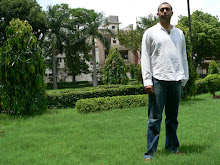The unilateral declaration of independence by Muslim-majority Kosovo from orthodox-Christian Serbia has focussed the world’s gaze on Balkans again. The region is a rare piece of real estate in geopolitics — one that is able to provide a base to meddle in the soft underbelly of your adversary.
The pokers here is the EU-US axis. The target here is Russia, whose gas and oil wealth has propelled it back into the first rank of powers. Under President Putin, Russia seeks to expand its sphere of influence and curb meddling foreign powers who he sees, often rightly, as being behind the country’s decline in the 1990s.
These are not mere phantom theories. Russia knows to its cost the emergence of US-backed Islamism. The current secretary of state, Robert Gates, has admitted in his 1997 book “From the Shadows” that the US was giving aid to Islamic rebels in Afghanistan six months before the Soviet Union invaded. Zbignew Brzezinski, then President Jimmy Carter's National Security Advisor, defended this action saying it gave the Soviets “their Vietnam War”.
In many ways we are present at the beginning of a new world. Kosovo can be seen as the convergence of two trends. The first is political. There is a divide between those who favour single-party nationalist perpetual government, like that in Russia, and the multi-party system of political representation, like that of the EU. Note there is no need for the system to be secular, in effect recognising the shadow of religion on societies.
The second trend is the emergence of small nations when for centuries there was a tendency for countries to get bigger. Building large industries using captive home markets under the protection of trade barriers was the global economic norm until the mid-seventies. This favoured big nations. But the consensus fell apart in the 60s and 70s. A series of trade talks in the 1970s led to national governments scaling back tariffs.
Then came the movement of capital flows across borders in the eighties. This meant small countries did not need large populations to accumulate savings – they could attract cash from global investors who wanted better returns than they got at home. There was also an acceptance that the absolute amount of capital was not important; rather, it was the amount of capital per worker. Again small nations benefitted - despite calls for protectionism in larger economies suffering under high oil prices and unemployment.
Kosovo is a sliver of Europe and will almost certainly have a noisy multi-party system of government. It almost certainly be within a new western bloc – with its security guaranteed by the US and eventually federation with the European Union. Kosovo’s political and economic model will be modelled on the west and its stability reliant upon it.
We can see this process at work in Afghanistan, Georgia and Lebanon. Again the powers that have regarded these as virtual backyards are being replaced by western powers.
But Kosovo is a step further – carving out a state from Serbia. This is a direct result of the mid-90s war which the international community has decided was Serbi’as fault. Belgrade was simply unable to ensure human security in Kosovo. That Saddam Hussein massacred his own people was also the excuse the Blair and Bush war on Iraq.
The rising powers of the world, Russia, India and China all face Islamic insurgencies. Like Serbia they no doubt would not countenance the principle of independence for Chechnya, Kashmir or Xinjiang. All three nations might consider themselves too big and powerful to worry what the world thinks. But Kosovo is an important marker in international relations - emphasising that sovereignty and territorial integrity will be balanced with human rights. As long as it suits the US.
Subscribe to:
Post Comments (Atom)

No comments:
Post a Comment